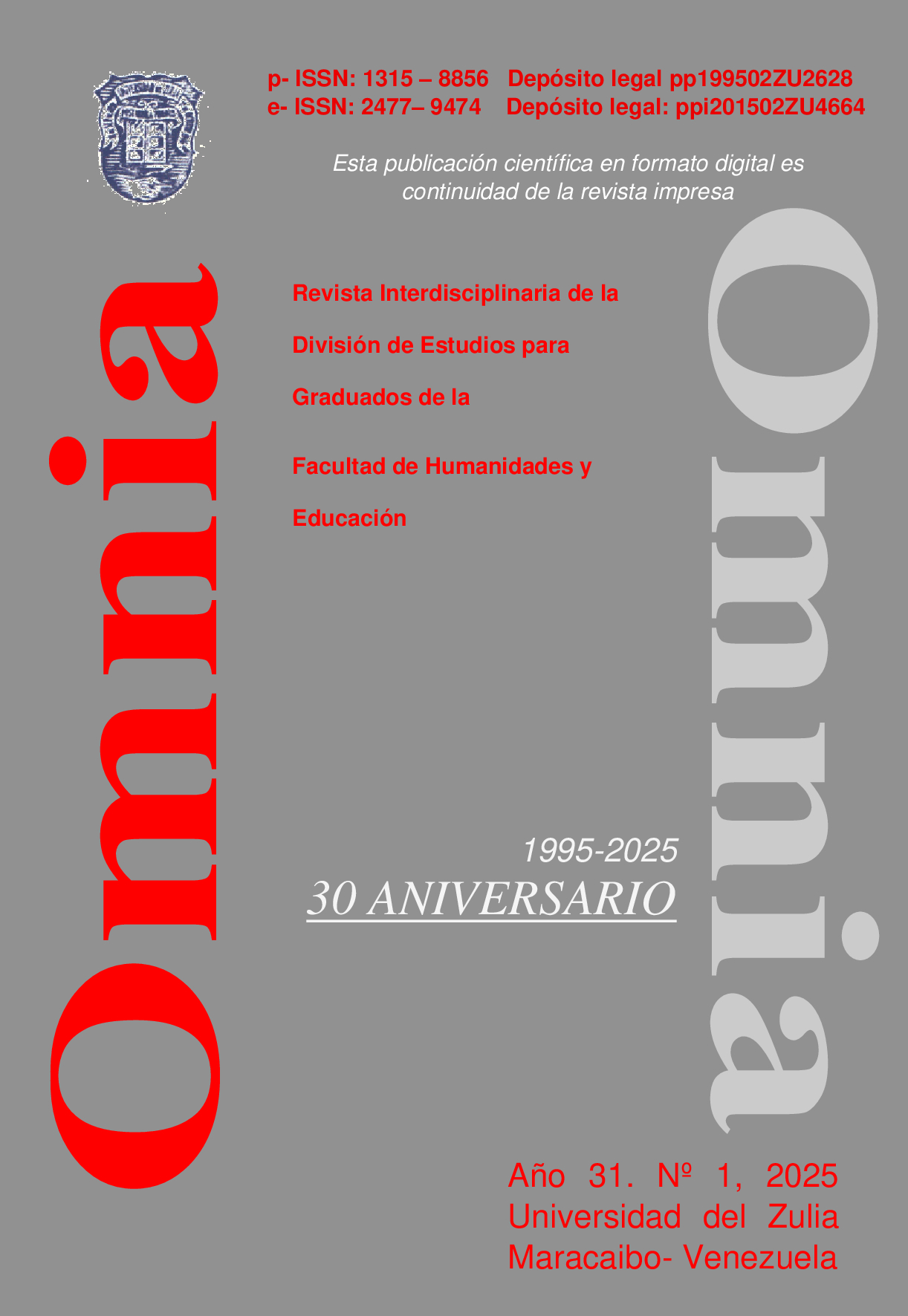Impact of video games on the learning process
Abstract
The purpose of this research was to analyze the impact of video games on the learning process, exploring both their positive and negative effects. A literature review of recent studies investigating this phenomenon was conducted. The results show that educational video games, when used appropriately, can enhance cognitive skills such as problem-solving and critical thinking, as well as foster student motivation. However, adverse effects were also identified, such as the risk of addiction and potential decline in academic performance due to excessive video game use. In conclusion, while video games can be valuable educational tools, their integration must be carefully regulated to maximize benefits and minimize risks. This study provides a foundation for future research and the development of educational policies that promote a balanced use of video games in educational contexts
Downloads
References
Denham, André (2019). Using the PCaRD digital game-based learning model of instruction in the middle school mathematics class-room: A case study. British Journal of Educational Technology, 50 (2), 415-427. https://doi.org/10.1111/bjet.12582.
Dicheva, Darina., Dichev Christo., Agre Gennady y Angelova Galia (2015). Gamification in Education: A Systematic Mapping Study. Educational Technology y Society, 18 (3), 75–88.
Ferguson, Christopher; Coulson, Marl y Barnett, Jane (2011). A meta-analysis of pathological gaming prevalence and comorbidity with mental health, academic and social problems. Journal of Psychiat-ric Research, 45 (12), 1573-1581. https://doi.org/10.1016/j.jpsychires-.2011.09.005.
Ferguson, Christopher y Olson, Cheryl (2013). Friends, fun, frustration and fantasy: Child motivations for video game play. Motivation and Emotion, 37(1), 154-164. https://doi.org/10.1007/s11031-012-9284-7.
Freeman, D. (2008). The gaming addiction handbook: Diagnosis and treatment. Journal of Behavioral Addictions, 2(4), 189-196. [No-ta: Esta referencia parece tener un error en el año o en el nombre de la revista, ya que el JournalofBehavioralAddictions comenzó en 2012].
Garay-Montenegro, Julia y Ávila-Mediavilla, Carlos (2021). Videojuegos y su influencia en el rendimiento académico. EPISTEME KOI-NONIA, 4(8).http://portal.amelica.org/ameli/jatsRepo/258/2582582004/index.html.
García, Sandra; Velázquez, Ma Celeste; D’Agostino, Alberto; Salto, Die-go; Lardies Arenas, Fernanda; Cuozzo, Sílvia; Díaz Ballve, Lasdi-lao y Carvalho, Tatiana (2023). Uso de pantallas, sedentarismo y actividad física en los niños menores de seis años, durante el pe-riodo de aislamiento social preventivo y obligatorio en AMBA: en-cuesta en línea. Revista de la Facultad de Ciencias Médicas de Córdoba, 80(4), 456-475. https://doi.org/10.31053/1853.0605.v80.n4.40343.
Gaspar Huamaní, Edith (2021). La gamificación como estrategia de motivación y dinamizadora de las clases en el nivel superior. Educación, 27(1), 33-40. https://doi.org/10.33539/educacion.2021.v27n1.2361.
Granic, Isabela; Lobel, Adam y Rutger, Engels (2014). The benefits of playing video games. American Psychologist, 69 (1), 66-78. https://doi.org/10.1037/a0034857.
Guarnizo Ante, Fredy; Quintero Zapata, Heidy y Castro Bruzual, Carlos (2024). Efectos del uso de videojuegos en el rendimiento académi-co de estudiantes de educación media. Mérito Revista de Educa-ción, 6(16), 11-21. http://portal.amelica.org/ameli/journal/729/7294822001/.
Hawlitschek, Anja y Joeckel, Sven (2017). Increasing the effectiveness of digital educational games: The effects of a learning instruc-tion on students' learning, motivation and cognitive load. Com-puters in Human Behavior, 72, 79-86. https://doi.org/10.1016/j.chb.2017.01.040.
Jong, M. S. Y., Chen, G., Tam, V., y Chai, C. S. (2020). The impact of digital games on students' learning and motivation in formal and informal learning contexts: A meta-analysis and systematic review. Educational Technology y Society, 23(1), 94-105.
Kuss, Daria y Griffiths, Mark (2012). Internet gaming addiction: A sys-tematic review of empirical research. International Journal of Men-tal Health and Addiction, 10(2), 278-296. https://doi.org/10.1007/s11469-011-9318-5.
Labrador Encinas, Francisco; Requesens Moll, Ana y Helguera Fuentes, Mayte (2010). Guía para padres y educadores sobre el uso seguro de Internet, móviles y videojuegos. https://www.madrid.org-/bvirtual/BVCM013902.pdf
Li, Feiyue; Zhang, Di; Wu, Souwei; Zhou, Rui; Dong, Chaoqun y Zhang, Jing (2023). Positive effects of online games on the growth of col-lege students: A qualitative study from China. Frontiers in Psy-chology, 14, Article 1008211. https://doi.org/10.3389/fpsyg.2023.1008211.
Moscardi, Ramiro (2018). Videojuegos y habilidades cognitivas [en línea]. Tesis de Licenciatura, Universidad Católica Argentina, Fa-cultad de Psicología y Psicopedagogía. Disponible en: http://bibliotecadigital-.uca.edu.ar/greenstone/cgibin/library.cgi?a=dyc=tesisyd=videojuegos-habilidades-cognitivas-moscardi [18/05/2024].
Nuyens, Filip; Kuss, Daria; López-Fernández, Olatz y Griffiths, Mark (2019). The empirical analysis of non-problematic video gaming and cognitive skills: A systematic review. International Journal of Mental Health and Addiction, 17(2), 389-414. https://doi.org/10.1007/s11469-018-9946-0.
Patiño García, Sara y Garzón, Juan (2024). Efectos de un videojuego en el aprendizaje y la motivación de los alumnos en un curso de Ciencias Naturales. Revista Virtual Universidad Católica del Norte, 71, 81-104.
Reynaldo, C., Ofalia, B., Baetiong, L. R., y Fajardo, D. M. (2021). Video games and learning: A review. Educational Technology Research and Development, 69(1), 249-268. https://doi.org/10.1007/s11423-020-09867-1.
Restrepo Escobar, Sandra; Arroyave Taborda, Leisy y Arboleda Sierra, Wilmer (2019). El rendimiento escolar y el uso de videojuegos en estudiantes de básica secundaria del municipio de La Estrella-Antioquia. Revista Educación, 43(2), 1-19..https://doi.org/10.15517/revedu-.v43i2.30564
Rodríguez-Armas, Jonathan y Zambrano-Santos, Robert (2024). Video game addictions and academic performance in high school stu-dents. Journal Scientific Investigar, 8 (1), 3108-3122. https://doi.org/10.56048-/MQR20225.8.1.2024.3108-3122.
Screpnik, Claudia; Cabrera Mejia, Javier; Negre Bennasar, Francisca y Salinas Ibáñez, Jesús (2023). Videojuegos aplicados a la ense-ñanza de las matemáticas iniciales: una revisión sistemática. RiiTE, 15, 79-102. https://doi.org/10.6018/riite.558751.
Stevens, Matthew; Dorstyn, Diana; Delfabbro, Paul y King, Daniel (2020). Global prevalence of gaming disorder: A systematic re-view and meta-analysis. Australian y New Zealand Journal of Psychiatry, 55(6), 553-568. https://doi.org/10.1177/0004867420962851.
Vélez Carrión, Nohellya (2024). Videojuegos en el rendimiento acadé-mico de estudiantes (Trabajo de Titulación). Universidad Nacional de Loja, Facultad de la Salud Humana, Carrera de Psicología Clíni-ca, Loja, Ecuador.
Wright, Jancee (2011). The effects of video game play on academic per-formance. Modern Psychological Studies, 17(1), 37-44.
Wu, Anise; Cheung, Vivi; Ku, Lisbeth y Hung, Eva (2020). Psychologi-cal risk factors of addiction to social networking sites among Chi-nese smartphone users. Journa lof Behavioral Addictions, 9(2), 241-252. https://doi.org/10.1556/2006.2020.00013.
Zapata-Lamana, Rafael; Ibarra-Mora, Jessica; Henriquez-Beltrán, Mario; Sepúlveda-Martín, Sonia; Martínez-González, Laura y Cigarroa, Igor (2021). Aumento de horas de pantalla se asocia con un bajo rendimiento escolar. Andes pediatr, 92(4), 565-575. https://doi.org-/10.32641/andespediatr.v92i4.3317.
Zhang, Jingjing; Li, Feiyou y Wu, Suowei (2023). The positive effects of online games on college students' academic performance. Fron-tiers in Psychology, 14, Article 1008211. https://doi.org/10.3389/fpsyg.-2023.1008211.





